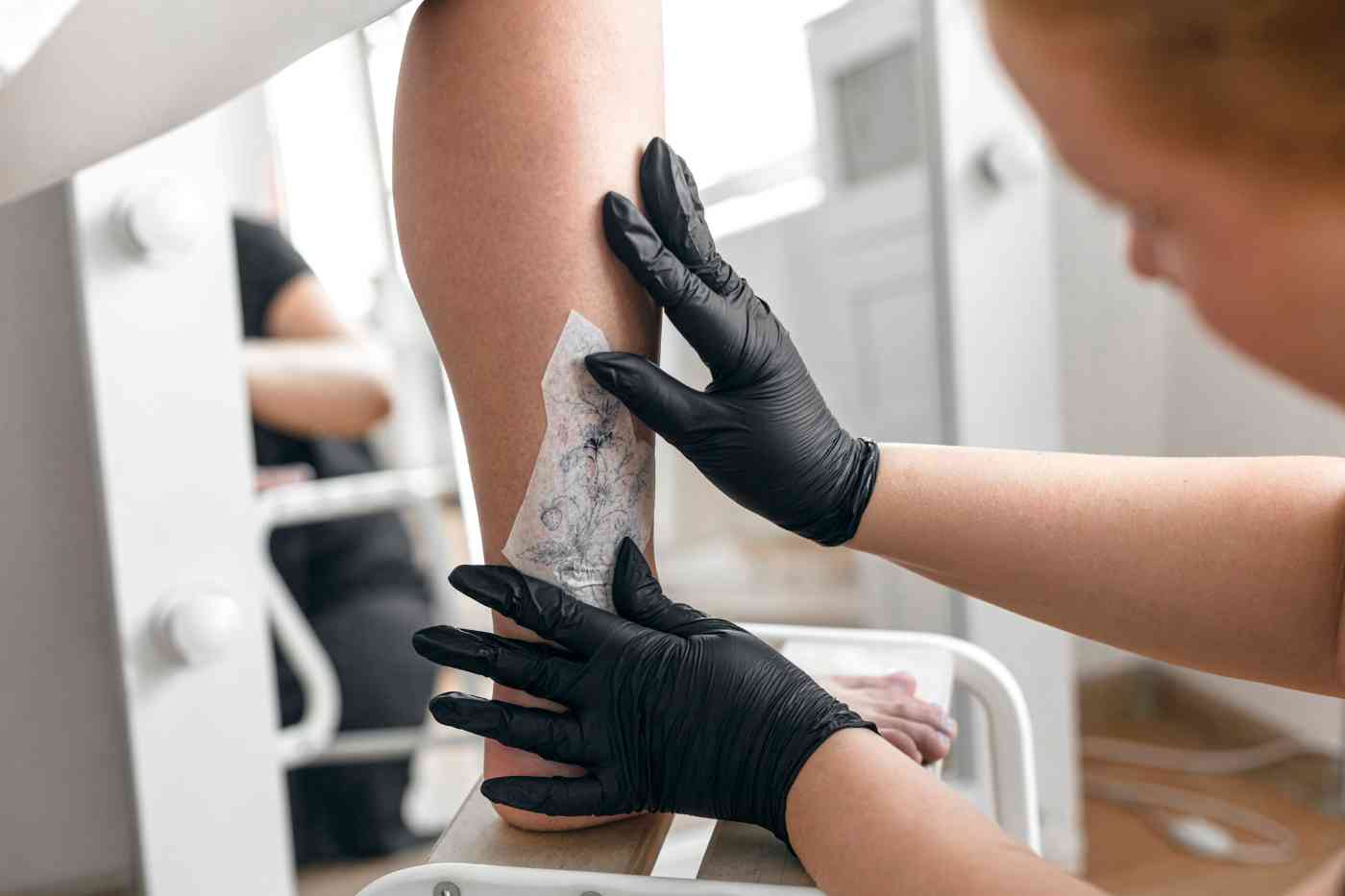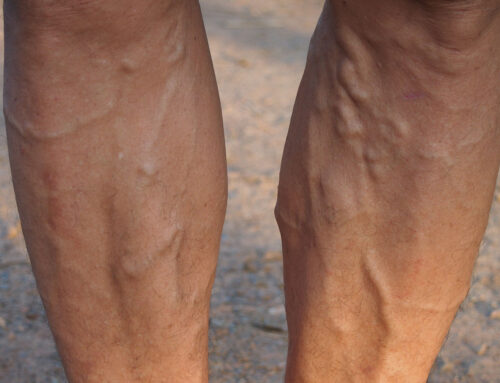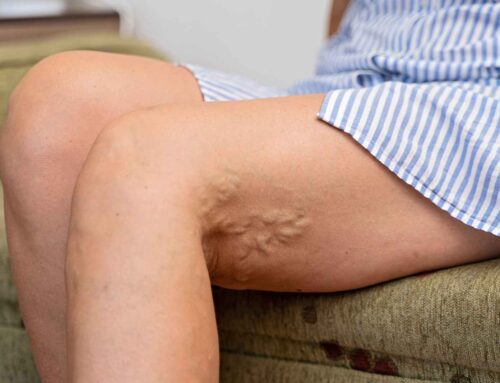Many individuals consider getting tattoos as a form of self-expression or to cover certain imperfections on their skin. However, when it comes to tattooing over veins, particularly varicose veins or spider veins, there are important considerations to keep in mind.
Can you tattoo over varicose veins?
When contemplating whether to tattoo over varicose veins, it’s crucial to understand the risks involved. Varicose veins are enlarged, twisted veins that are often visible under the skin. Tattooing over varicose veins can potentially cause the vein to rupture or lead to other complications.
For individuals looking to hide varicose veins, there are alternatives to tattooing. Consulting with a vein specialist can provide insights into safe practices and options available to address varicose veins without resorting to tattoos. Additionally, the effects of tattooing on prominent veins should be carefully considered before proceeding.
Are there risks in tattooing over veins?
One of the primary concerns with tattooing over veins, especially varicose veins, is the potential for vein rupture. The act of tattooing ink over a varicose vein can put undue stress on the vein walls, increasing the risk of damage. This, in turn, can impact vein health and potentially lead to complications.
Tattooing over varicose veins may cause issues including:
- ruptures
- increased swelling
- bleeding
- risk of infection
Instead of trying to disguise veins with makeup or tattoos, consider having treatment that will get rid of them for good. Seeking treatment for varicose veins can improve their appearance and give relief. There are several minimally invasive treatment options available, such as sclerotherapy, endovenous laser treatment, and ambulatory phlebectomy, that can effectively eliminate varicose veins and improve the look of your legs. These procedures are typically quick, relatively painless, and require little to no downtime.
Moreover, the presence of prominent veins can pose challenges for tattoo artists in achieving the desired tattoo outcome. Distortions in the tattoo may occur due to the irregular surface created by bulging veins, affecting the appearance of the tattoo over time.
What are safe tattooing practices for individuals with vein issues?
Prior to getting a tattoo, individuals with vein issues should consult with a vein specialist to assess the risks involved. Vein specialists can offer recommendations on proper vein treatment to address any underlying concerns before considering a tattoo. Taking precautions to prevent vein complications from tattoos is essential for maintaining vein health.
Ensuring that the tattoo artist is aware of any vein issues is crucial to minimize the potential impact on blood circulation and vein health. Proper communication and understanding between the individual and the tattoo artist can help mitigate risks associated with tattooing to cover over veins.
How does tattooing over veins affect blood circulation?
Tattooing over veins can have implications for blood circulation within the affected veins. The process of inserting tattoo needles into the skin may impact blood flow in the veins, particularly in cases where varicose or spider veins are present. Understanding the potential effects of tattoo needles on veins is essential for individuals considering getting a tattoo over veins.
Individuals with vein issues should carefully weigh the risks and benefits of getting a tattoo, taking into account the possible impact on vein health and blood circulation. Choosing to tattoo over veins requires a thorough understanding of how it may affect the overall health of the veins.
Get rid of veins instead of tattooing them
The alternative to hiding varicose veins is removing them. Procedures such as sclerotherapy or laser therapy can help reduce or eliminate the appearance of veins, leaving the skin looking smooth and clear. By addressing the root cause of the issue, individuals can achieve long-lasting results without the need for constant cover-up.
Instead of simply masking the problem with a tattoo, individuals may find it more beneficial to invest in treatments that target the veins directly. Not only can this improve the overall appearance of the skin, but it can also boost confidence and self-esteem. Veins may be a natural part of the body, but that doesn’t mean they have to be a permanent fixture.
What procedures can be used to remove veins before getting a tattoo?
Before getting a tattoo, individuals may choose to have their veins removed through various procedures to ensure a smooth and clear canvas for their tattoo artist. One common method is Ambulatory Phlebectomy (AP), which involves the physical removal of the unsightly varicose veins through tiny incisions in the skin. Another option is Ultrasound Guided Sclerotherapy, where a solution is injected into the veins to collapse them. Radiofrequency Ablation (RFA) is a minimally invasive procedure that uses heat to seal off the veins, causing them to eventually disappear. Lastly, Endovenous Laser Treatment (EVLT) uses a laser fiber to deliver heat directly to the veins, causing them to close off and fade away.
What are the alternatives for individuals wanting to cover vein issues?
For those seeking to address vein issues without resorting to tattoos, there are alternative methods available. Non-tattoo approaches, such as sclerotherapy, can effectively treat varicose veins and spider veins, improving the appearance of the skin without the need for tattoos.
Compression stockings are another alternative to tattoos for individuals looking to support venous circulation and reduce the visibility of varicose veins. These stockings provide gentle pressure on the legs, helping to manage vein issues without the potential risks associated with tattooing over veins.
In conclusion, while the idea of tattooing over veins may seem like a convenient solution for those seeking to conceal varicose or spider veins, it’s essential to recognize the potential risks involved. Varicose veins, in particular, can pose significant challenges during the tattooing process, including the risk of vein rupture and compromised blood circulation. Rather than masking the issue with tattoos, individuals are encouraged to explore safe and effective treatment options such as sclerotherapy, endovenous laser treatment, or ambulatory phlebectomy to address vein concerns directly. Consulting with a vein specialist before considering a tattoo can provide valuable insights into the best course of action for maintaining both vein health and aesthetic preferences. By prioritizing long-term solutions over temporary cover-ups, individuals can achieve smoother, clearer skin and enhance their overall well-being without the need for tattoos over veins. Contact us today for a consultation.
Q: Is it safe to tattoo over varicose veins?
A: Tattooing over varicose veins can have risks such as damaging the vein or surrounding tissue. It is advisable to consult with a vein specialist or dermatologist before proceeding.
Q: What are the alternatives to hiding varicose veins with tattoos?
A: Alternatives to tattooing over varicose veins include vein treatments, such as sclerotherapy or laser therapy, which can help reduce the appearance of varicose veins.
Q: Can tattooing over varicose veins rupture the vein?
A: Yes, tattooing over varicose veins could potentially rupture the vein, leading to serious complications. It is essential to consider the risks involved before getting a tattoo over varicose veins.
Q: How can tattooing over varicose veins distort the tattoo?
A: Varicose veins can cause the skin to be uneven, which may lead to distortion of the tattoo design. The appearance of the tattoo may not be as intended due to the varicose veins.
Q: Is it safe to get a tattoo on veins?
A: It is generally not recommended to tattoo directly over veins, especially varicose veins, as it can cause an infection or other complications. Consult with a medical professional before tattooing over any veins.
Q: How can veins with tattoos affect vein health?
A: Tattooing over veins can potentially damage the vein and affect the overall vein health. It is essential to consider the implications of tattooing over veins, especially if you have vein issues.
Q: Are there risks associated with tattooing over varicose veins?
A: Yes, there are risks associated with tattooing over varicose veins, such as causing further damage to the veins, surrounding tissue, or even leading to serious vein-related complications.






Leave A Comment